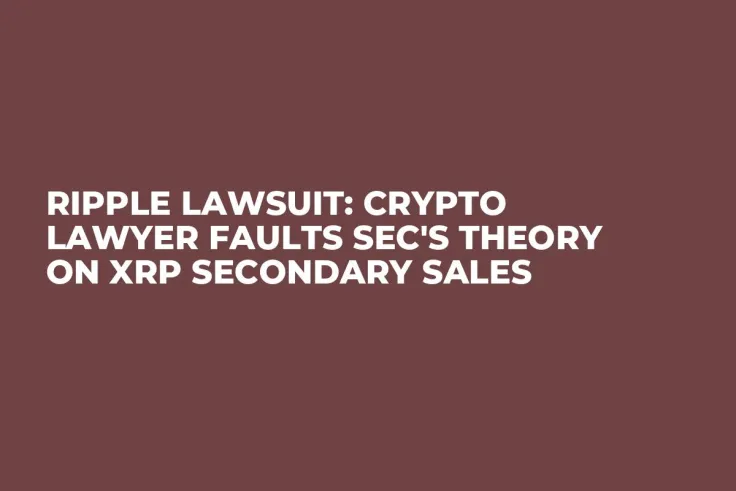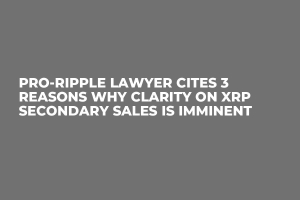
Disclaimer: The opinions expressed by our writers are their own and do not represent the views of U.Today. The financial and market information provided on U.Today is intended for informational purposes only. U.Today is not liable for any financial losses incurred while trading cryptocurrencies. Conduct your own research by contacting financial experts before making any investment decisions. We believe that all content is accurate as of the date of publication, but certain offers mentioned may no longer be available.
CryptoLaw founder and XRP holders' attorney John Deaton faults the SEC's logic on XRP secondary sales in recent tweets.
Deaton shared a screenshot of a part of the SEC's argument that highlighted its position that "the XRP traded, even in the secondary market, is the embodiment of those facts, circumstances, promises, and expectations, and today represents the investment contract."
Excellent 🧵although I’m certainly one of the lawyers discussing unnecessary issues. I don’t mind the comment b/c I agree w/it. Unfortunately, when the SEC takes the position that “The XRP traded, even in the secondary market…represents the investment contract” one is forced to. https://t.co/I26hcuUc15?from=article-links pic.twitter.com/xUJczT6a2c
— John E Deaton (@JohnEDeaton1) June 19, 2023
The CryptoLaw founder stated that he had asked the SEC to provide just one example in which it had been determined that there had been an investment contract, even though there had been no privity or contact between a buyer and a seller or a promoter. He stated that the SEC failed to prove its claim.
When all the law is taken into consideration, the SEC has nothing to support its theory that secondary market sales are also securities, Deaton stated. He adds that some may argue that the SEC has the right to pursue novel theories unsupported by the law, but he disagrees with this.
Deaton stated that the SEC has the authority provided by Congress and existing law, and if novel, unsupported theories are being pushed, then the application of the Fair Notice Defense becomes necessary.
As reported, Deaton believes the ruling judge in the Ripple-SEC case is likely to address the issue of secondary market sales, as opposed to the opinion of some that this might not be addressed.
He offers three explanations. First, the SEC's motion for summary judgment nearly compels the judge to grant it as drafted.
Second, the judge chooses not to be silent on the multiple amicus briefs submitted in the Ripple dispute, including the one by John Deaton on behalf of XRP holders; this may shed light on secondary market sales.
Third, the judge may be aware of the precedent concerning secondary market sales established in the LBRY v. SEC case.


 Dan Burgin
Dan Burgin Vladislav Sopov
Vladislav Sopov